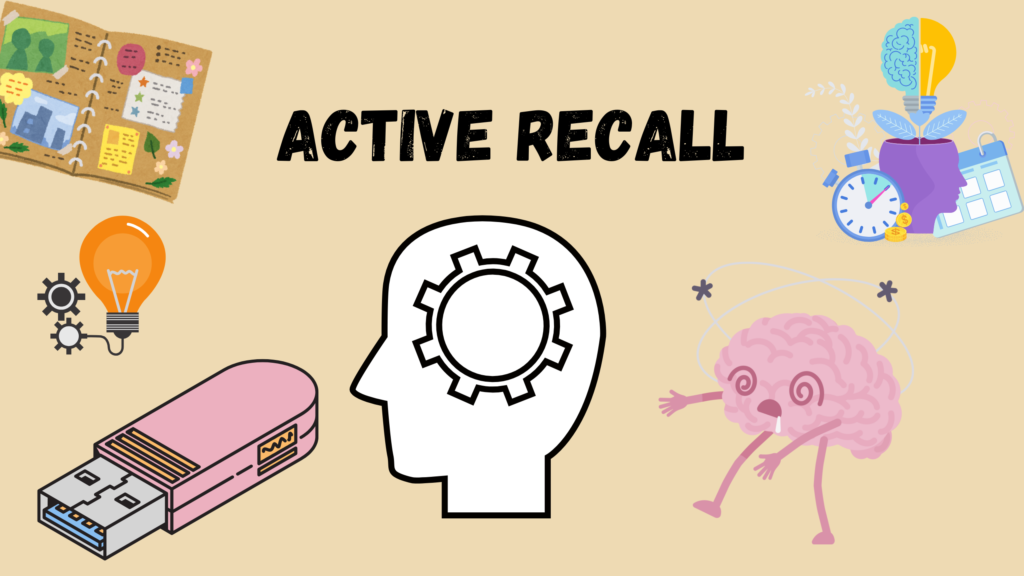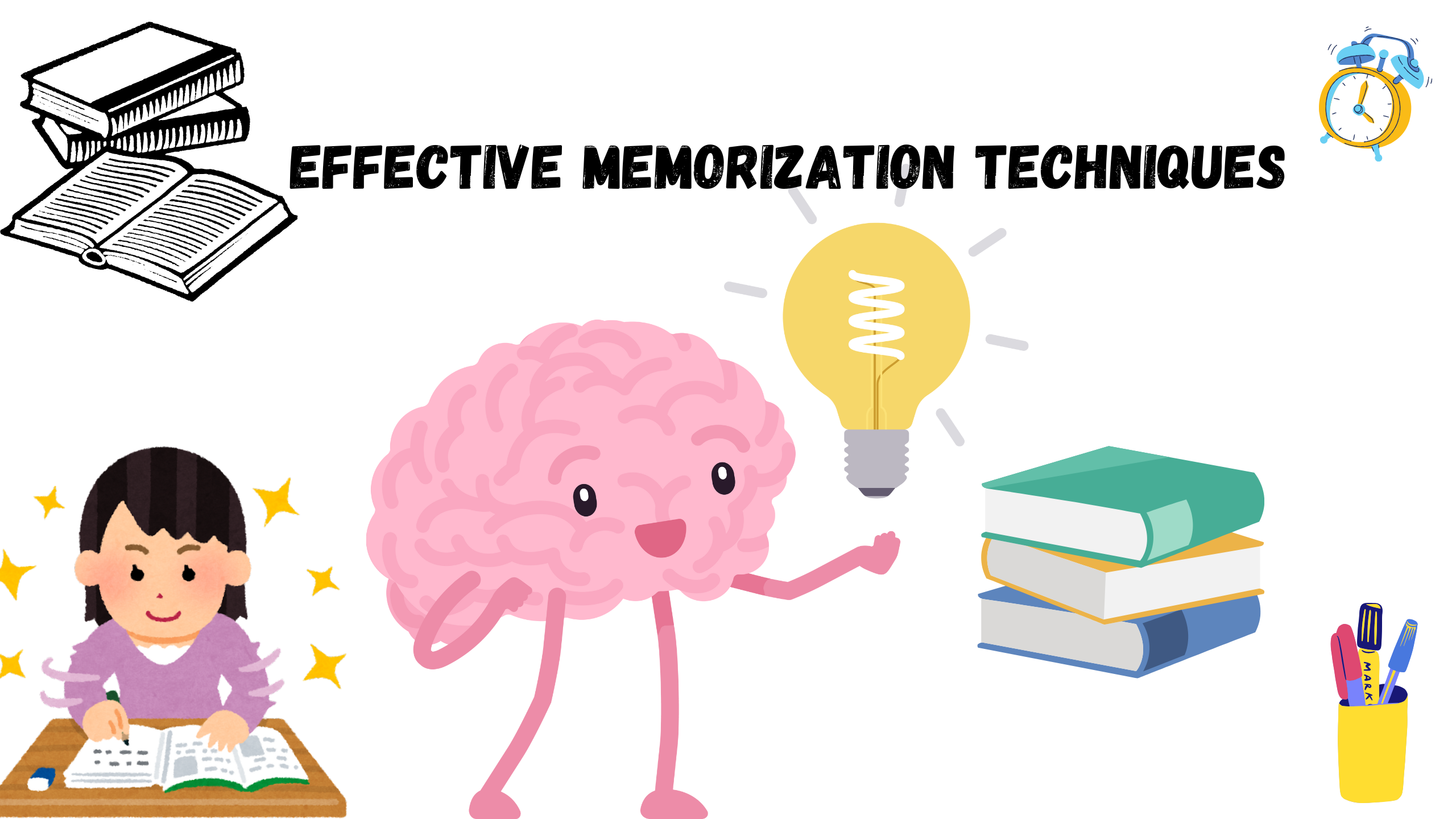Let’s be real—memorizing stuff can feel impossible, especially when faced with pages upon pages of material. Sometimes hours went and you can’t comprehend the text in front of you. That happens to everyone. You are not alone. But you know many effective memorization techniques can help you study more effectively.
This article will help you turn “I’ll Never Remember That!” into “I Got This!”
This article is packed with methods to make memorization not feel like a chore. From brain hacks to visualization tricks, get ready to level up your memory game. Grab your coffee, and let’s get to i
1. Get in the Right Headspace
Before anything else, prepare your mind. Memorization works better when you’re calm and focused. Stress doesn’t exactly help the brain remember who discovered America, let alone all the details for your final exam. Here’s how to prep your mind for top-notch memorization:
- Take a Deep Breath: Quick breathing exercise—inhale deeply, hold for three seconds, and exhale. You’ll be surprised how a little oxygen boost can improve focus.
- Imagine Success: Picture yourself recalling every single word in the exam. Sounds silly, but imagining success can set a positive tone for learning.
Why it works: It’s all about reducing anxiety and making your mind “ready to learn.” When the brain is relaxed, it’s better at building memory connections.
2. Make Friends with Mnemonics
Mnemonics are memory aids that make boring info fun (or at least tolerable). Think acronyms, silly sentences, or catchy rhymes. Need to remember the planets? Try “My Very Educated Mother Just Served Us Noodles.” Boom—you’re now a planetary expert.
- Acronyms: Pick the first letter of each item to create a word (e.g., “HOMES” for the Great Lakes: Huron, Ontario, Michigan, Erie, Superior).
- Silly Stories: Need to remember grocery items? Imagine a banana driving a car to remind you to get bananas and a bottle of juice for a “passenger.”
Why it works: Our brains love stories. The crazier the story, the better your brain will hold onto it.
3. Active Recall: Let Your Brain Do the Heavy Lifting
Ever read a page and instantly forget what you read? Enter Active Recall. Instead of passively reviewing notes, ask yourself questions without looking at the answers. Testing yourself is a superpower for memory. Make flashcards or jot down the questions in a notebook.
- Quiz Yourself: After reading a paragraph, try to summarize it in your own words without looking.
- Say It Out Loud: Teaching or explaining it aloud to an imaginary friend or your pet forces your brain to solidify the info.
Example: Just read about how photosynthesis works. Try explaining it to your cat, complete with hand gestures.
Related Article: How to study effectively?
4. Spaced Repetition: Because Repetition Works… Eventually

Spaced repetition means reviewing material over time, rather than cramming all at once. The brain loves a good break, so space out your study sessions instead of pulling an all-nighter.
- Use a Calendar: Write down what to review each day, spacing out the topics by days or weeks.
- Try Flashcard Apps: Anki or Quizlet are great for this! They’ll remind you to review info at just the right intervals to avoid forgetting.
Why it works: The brain builds stronger memories when you revisit the info at intervals. It’s like watering a plant—you don’t drown it in water all at once.
5. Mind Mapping: Your Brain Loves Visuals!
If you’re a visual learner, mind mapping is your best friend. Think of it as a colorful web of ideas where the main topic branches out into smaller, related topics. Use colors, doodles, and lines to connect ideas.
- Get Creative: Draw branches for each topic, add colors, and throw in some doodles. It’ll make studying feel like art class.
Why it works: Visuals activate different parts of your brain, helping solidify ideas with images rather than plain text.
6. Chunking: Break It Down Like a Pro
Chunking means grouping bits of info together, like splitting a long phone number into smaller sections. Your brain likes digestible bits, so break down massive amounts of data into smaller, easier-to-recall chunks.
- Divide Topics: For history, focus on “Major Wars,” “Important Figures,” and “Inventions” separately.
- Example: Remembering dates? Focus on one century at a time instead of the whole timeline.
Why it works: Chunking reduces cognitive load, making it easier to retain big concepts without overwhelming your brain.
7. Use Physical Movements: Get Up, Move, and Memorize!
Strange but true: movement helps memory. Pair information with physical actions to make it stick. Imagine a quick walk while reciting your notes, or add hand gestures for each concept. Some people even pace or use gestures to create “anchors” that tie a concept to a specific movement.
- Example: While studying biology, assign each organ system a hand movement—do a “wave” for the circulatory system or mimic a heart pumping motion.
Why it works: Physical movements engage different senses and pathways in the brain, creating stronger memory connections.
8. Get Emotional with Emotional Associations
We remember emotions better than plain facts. So if you’re studying something important, find a way to connect it emotionally. History dates boring? Imagine being there. Math feels dull? Imagine how proud you’ll be after acing the test.
- Example: Think of a meaningful experience related to the topic, like associating WWII dates with a movie scene that moved you.
- Write it Down: Make a quick note of how learning this material could impact your life. Emotional connections make memory stick.
Why it works: Emotions are powerful memory anchors. Attaching a feeling to a topic can improve recall, especially when it’s meaningful.
Conclusion: Recap and Refresh
Memorization doesn’t have to be a dreadful task. With mnemonics, mind maps, physical movement, spaced repetition, and emotional associations, you’re well on your way to retaining more than you thought possible. Remember: repetition, creativity, and active engagement are your brain’s best friends. Now go on, give these tips a try—and make memorization feel like a piece of cake (or at least, not like pulling teeth!).
“Success is the sum of small efforts, repeated day in and day out.” — Robert Collier



